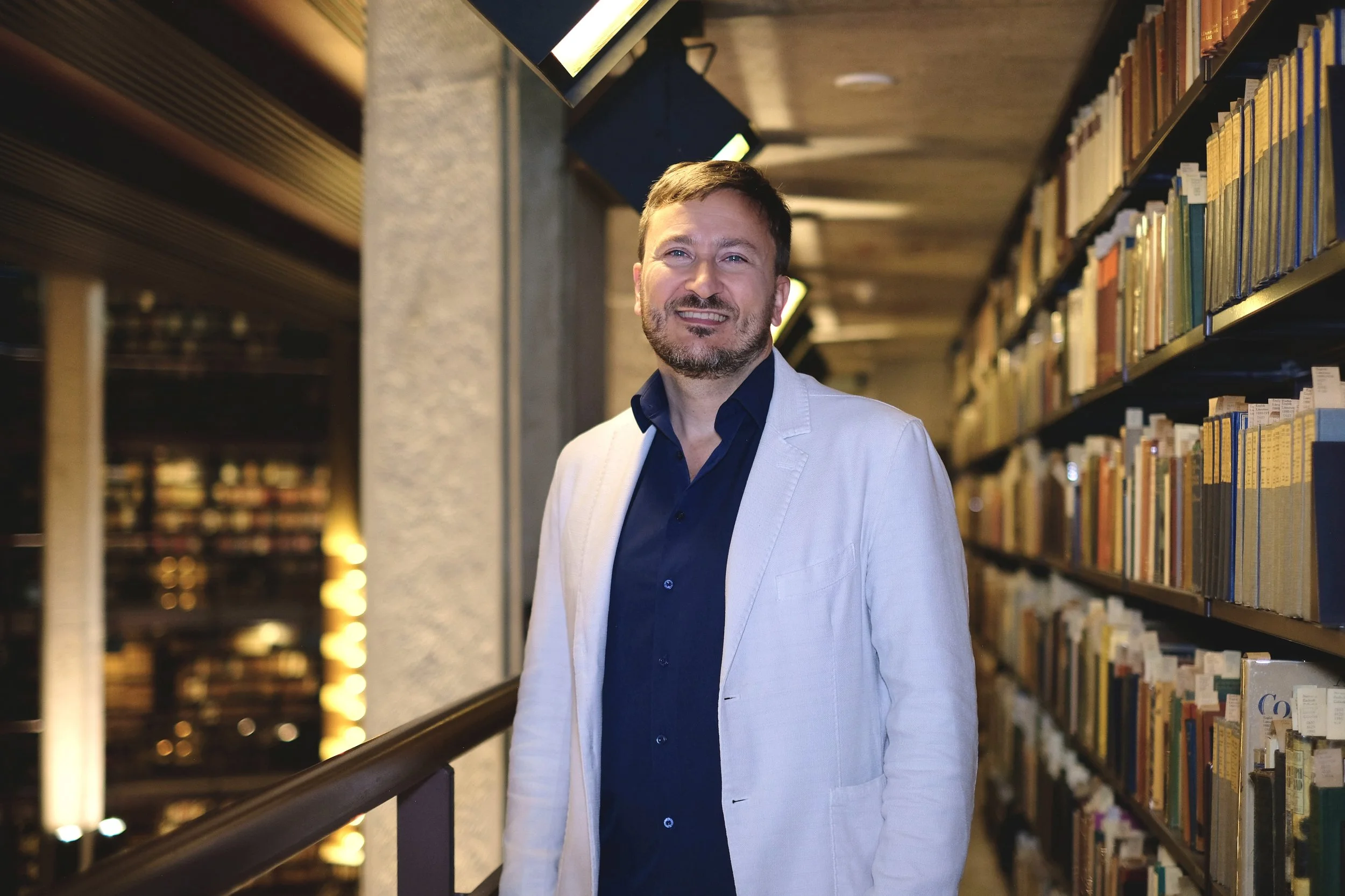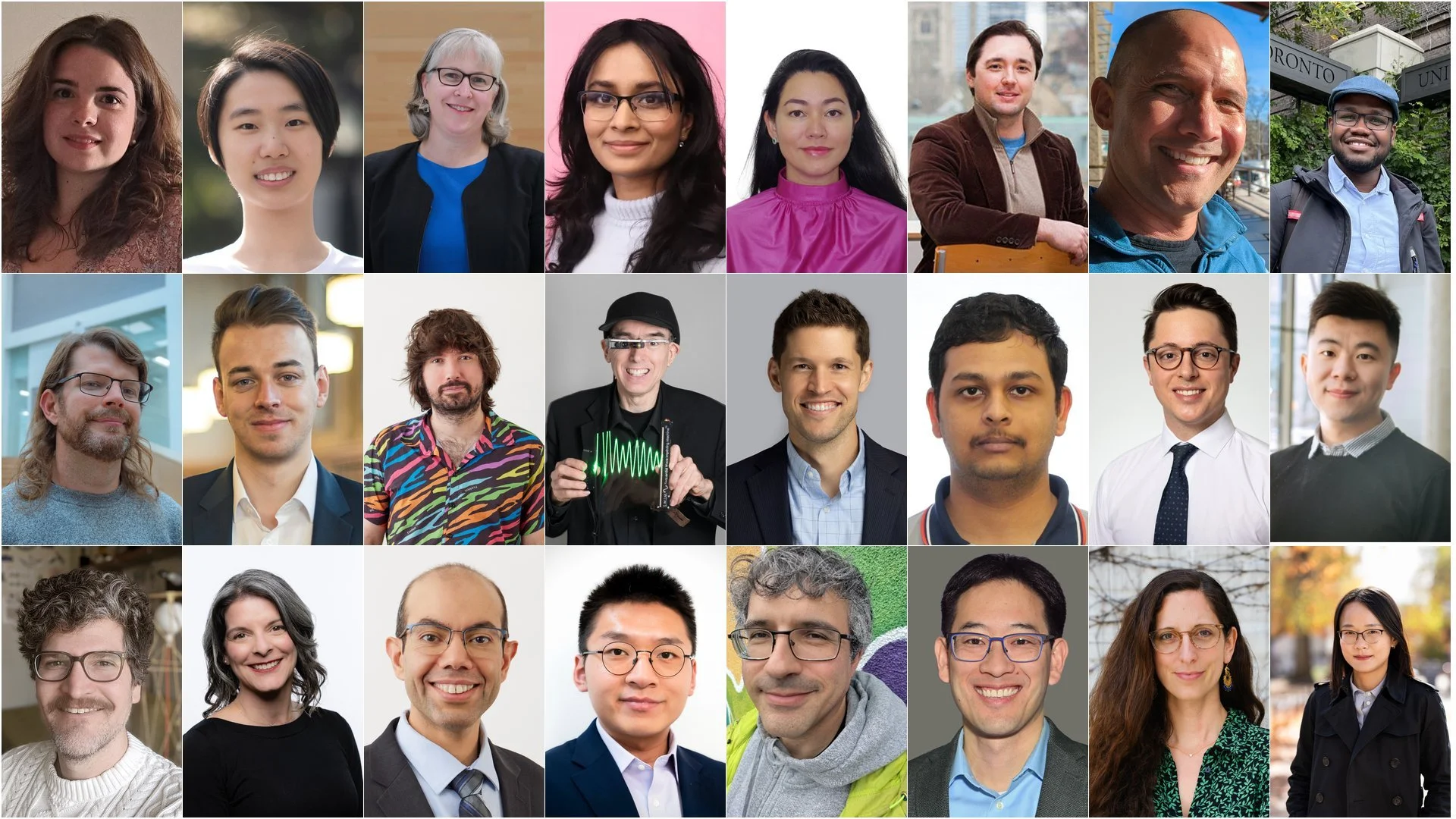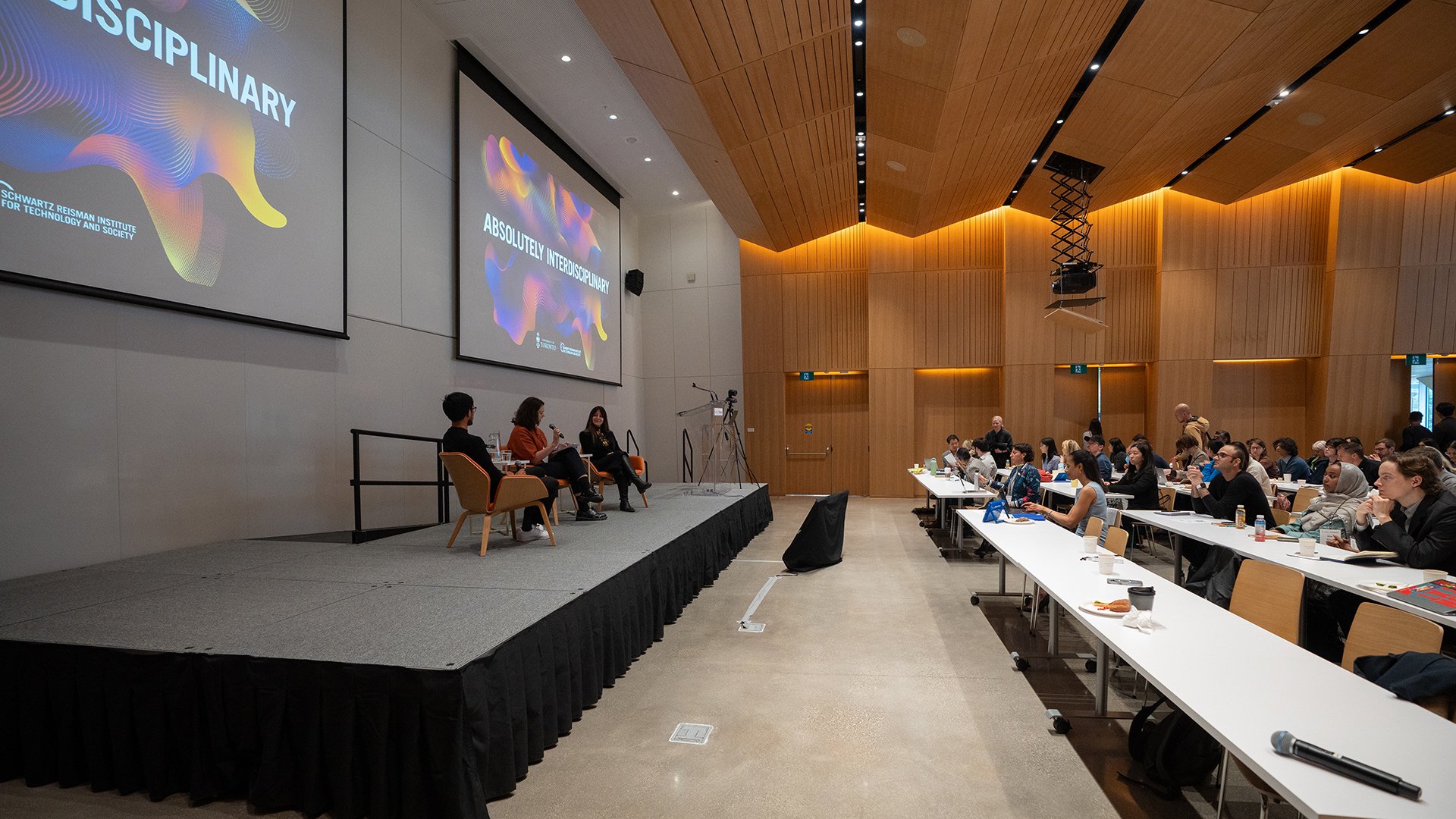WHAT’S HAPPENING
Here’s what we’re thinking about, talking about, and working on at the Schwartz Reisman Institute.
When the algorithm is wrong: A new partnership calls out racism in AI systems
A new partnership co-led by Karina Vold is confronting racism in AI systems—highlighting how tools like facial recognition and LLMs disproportionately harm Black and racialized communities, and calling for greater public awareness and equitable governance of AI in Canada.
Rethinking knowledge in the age of AI
SRI Faculty Affiliate Paolo Granata reflects on his new book Generative Knowledge: Think, Learn, Create with AI, rethinking how artificial intelligence reshapes learning, research, and creativity by positioning AI as a co-creative partner in intellectual life rather than merely a tool for automation.
Beyond algorithms: Travis LaCroix on AI and the value alignment problem
SRI Faculty Affiliate Travis LaCroix explores the social and political dimensions of AI ethics in his new book Artificial Intelligence and the Value Alignment Problem, arguing that meaningful alignment requires confronting questions of power, justice, and whose values shape emerging technologies.
Call for 2026 Schwartz Reisman Institute Graduate Fellows now open
The Schwartz Reisman Institute is now accepting applications for its 2026 Graduate Fellowships, supporting U of T researchers advancing responsible, human-centred approaches to AI and emerging technology. The one-year fellowship includes a $7,500 stipend and access to SRI’s interdisciplinary research community. Apply by February 8, 2026.
Schwartz Reisman Institute releases 2025–2028 strategic plan
The Schwartz Reisman Institute for Technology and Society has launched its 2025–2028 strategic plan, outlining a focused vision for steering advanced AI toward safety, ethics, and the public good. Centered on safe AI systems, data integrity, and the social impacts of technology, the plan sets out priorities to advance interdisciplinary research, translate insights into real-world policy impact, and strengthen global leadership in AI governance.
SRI appoints Bruce Schneier as visiting senior policy fellow
Global security expert and author Bruce Schneier—known for reshaping how the world understands security, privacy, and trust—has joined the University of Toronto’s Munk School of Global Affairs & Public Policy and the Schwartz Reisman Institute for Technology and Society (SRI) as a visiting senior policy fellow for 2025–26.
Eight research leads drive SRI’s mission forward with new projects
With two new appointments and six renewed roles, the Schwartz Reisman Institute’s 2025–26 cohort of research leads will advance projects on trust, creative pedagogy, agentic AI, democratic fairness, and human–machine relationships, fostering public dialogue and policy insights on the transformative role of advanced technologies like artificial intelligence.
SRI Seminar Series continues in fall 2025 with leading voices on technology and society
The Schwartz Reisman Institute is proud to announce its SRI Seminar Series programming for Fall 2025. This semester, an extraordinary lineup of scholars, technologists, and legal thinkers will examine urgent issues at the intersection of technology, governance, and society. Through thought-provoking presentations of new research and ideas, the series will explore topics ranging from the ethics of AI in education and the creative industries, to the governance of advanced AI systems, to the social and political dynamics of democratic engagement in the digital age.
Schwartz Reisman Institute welcomes 24 new faculty affiliates for 2025–26
The Schwartz Reisman Institute is pleased to announce the appointment of 24 new faculty affiliates for the 2025–26 academic year—its largest incoming cohort to date. Representing a broad range of disciplinary backgrounds, the new affiliates bring deep expertise in artificial intelligence (AI), data science, public policy, digital culture, healthcare, ethics, law, sustainability, and education.
University of Toronto team discovers vulnerability at hardware-software boundary in cloud systems
SRI Director David Lie and collaborators have discovered a security flaw in AMD’s cloud protection technology, revealing how interactions between hardware and software can expose sensitive data.
Navigating trust in AI: Call for expressions of interest
SRI Research Lead Beth Coleman is leading a transdisciplinary working group focused on trust in AI design and governance, which will convene during the 2025–26 academic year. Applicants are encouraged to submit expressions of interest to participate, with a deadline of August 15, 2025.
Absolutely Interdisciplinary 2025 explores new frontiers in AI research
At SRI’s annual conference, participants discussed future directions and key challenges in AI research, including the complexities of aligning advanced AI with human values and interdisciplinary perspectives on AI safety.












